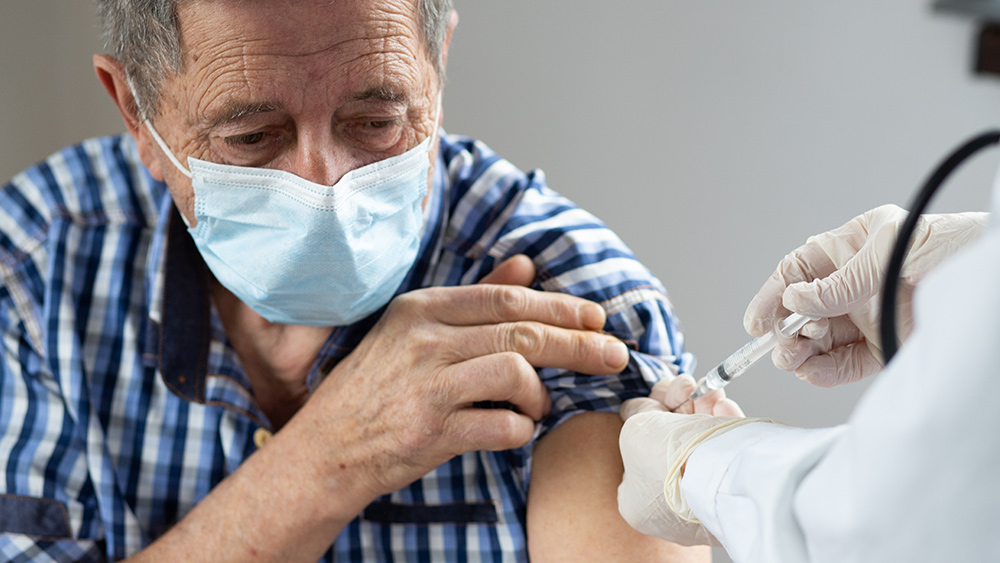FDA investigating CAR-T gene therapy cancer treatment after reports of patients developing new cancers after the procedure
12/05/2023 / By Cassie B.

One of the criticisms that many people have of modern medicine is the fact that certain types of treatments may well address one ailment but have the possibility to create a different – and potentially even worse – problem. Now, it appears this could be the case with a gene therapy treatment that is being used on some cancer patients after reports have emerged that it can cause new blood cancers.
The treatment in question is known as CAR-T, and it received approval from the U.S. Food and Drug Administration (FDA) in 2017 to treat some types of blood cancer. In the intervening years, however, the FDA has received reports of T cell malignancies in certain patients who underwent these treatments. These malignancies include lymphoma, which is a cancer that involves the lymphatic system.
The way CAR-T works is by removing white blood cells known as T cells from the patient’s blood and then genetically engineering them to form proteins known as chimeric antigen receptors, or CAR. These receptors enable T cells to attach themselves to the cancerous cells and kill them. After the genetic engineering process is finished, the modified cells are then infused back into the patient’s blood.
However, when the T cells are being genetically modified, a virus is used to insert the new genes into the cell’s DNA. Once these modified T cells are inserted back into the patient’s blood, they do have the potential to disrupt other genes, which could be what is causing new cancers in these patients.
Medical experts say that they were caught by surprise by the announcement by the FDA, with some saying they would like more information about the clinical status of the patients who experienced this effect as well as their medical history to provide some context.

The director of the Center for Genetic and Cellular Immunotherapy at Washington University School of Medicine, Dr. John de Persio, told the New York Times that none of his roughly 700 patients who have undergone this treatment developed a new type of T cell cancer as a result.
He added that this treatment is generally reserved for patients who are expected to die otherwise and that it works on “a substantial portion” of them, saving their lives.
It is important to note, however, that many patients who receive CAR-T are getting it as a last resort treatment and have already undergone treatments such as radiation and chemotherapy that were unsuccessful. These treatments can also cause people to develop cancers.
All currently approved CAR-T treatments are under investigation
The risk of developing malignancies from CAR-T applies to all six CAR-T products that are currently approved for usage in the U.S. An analysis by the medical news website Fierce Pharma reveals that 12 cases of T cell lymphoma in connection with CAR-T have been reported so far. Novartis’s Kymriah has been linked to seven cases, while Gilead’s Yescarta has been linked to three and Carvykti from J&J and Legend and Breyanzi from Bristol Myers Squibb have each been connected to one case.
All of these treatments have been linked to numerous adverse events in the FDA’s Vaccine Adverse Event Reporting System, according to an analysis of data by the Epoch Times. There have been thousands of serious cases and deaths overall, including blood and lymphatic system disorders.
The FDA said in an announcement: “Although the overall benefits of these products continue to outweigh their potential risks for their approved uses, FDA is investigating the identified risk of T cell malignancy with serious outcomes, including hospitalization and death, and is evaluating the need for regulatory action.”
Sources for this article include:
Submit a correction >>
Tagged Under:
big government, Big Pharma, biotechnology, cancer criminals, Cancer Scams, CAR-T, FDA, gene therapy, genetic engineering, genetic lunacy, health science, lymphoma, Oncology, real investigations
This article may contain statements that reflect the opinion of the author





















